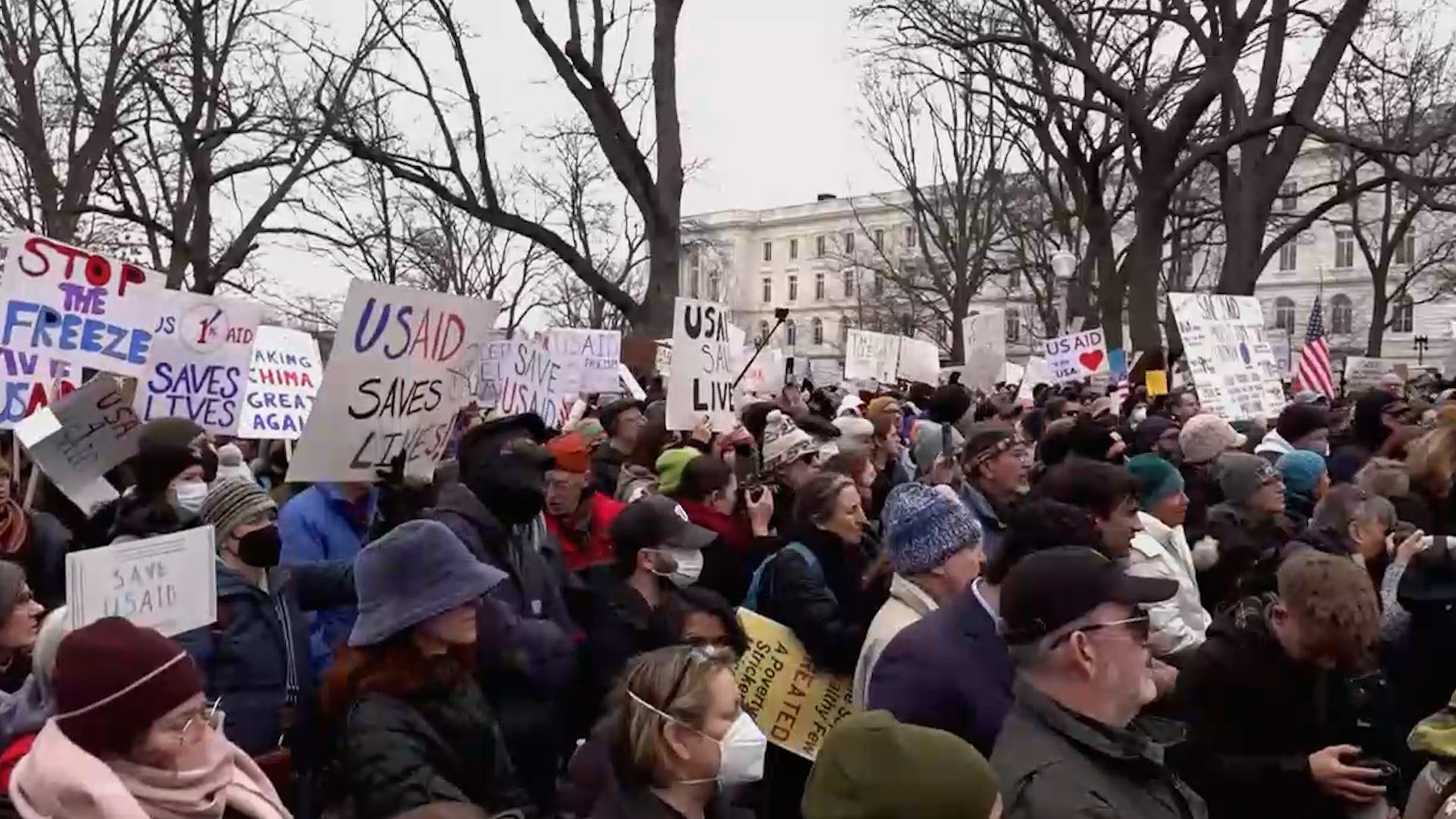Trump says he wants to protect free speech. Advocates say he's undermining it.

In what President Donald Trump says is a move to protect the rule of law and free speech advocates see as an attack on it, the White House is promising tougher punishments for vandalizing public monuments, statues and religious displays.
The move, tucked into an executive order celebrating the nation's 250th birthday, resurrects a similar effort Trump made in June 2020, as racial-justice protests rocked the country following the murder of George Floyd.
The order give federal officials more power to target protesters who vandalize, and to penalize police departments if the federal government says they aren't doing enough to stop that vandalism.
"These radicals shamelessly attack the legitimacy of our institutions and the very rule of law itself," Trump's executive order says. "Their selection of targets reveals a deep ignorance of our history, and is indicative of a desire to indiscriminately destroy anything that honors our past and to erase from the public mind any suggestion that our past may be worth honoring, cherishing, remembering, or understanding."
Many conservatives remain angry at liberal cities like Minneapolis and Portland, Oregon, that didn't do more to clamp down on the sometimes-violent street protests in 2020, which often led to widespread property damage and arson. Trump has also issued an executive order aimed at punishing pro-Palestinian protesters on college campuses.
Free-speech advocates called the orders a direct attack on protests and the First Amendment.
"This is all about targeting based on political beliefs and expressed viewpoints with which this administration disagrees," said Mara Verheyden-Hilliard, the executive director of the Center for Protest Law and Litigation. "It's not about the underlying claims about damages to persons or property. Because there are already provisions in the law to deal with this."
The executive order aligns with longstanding efforts by the Trump administration to push back against education that focuses on the failings of the United States, particularly when it comes to slavery and colonialism. In a different order establishing a commission designed to increase patriotism, Trump said that "demanding acquiescence" to white privilege or unconscious bias in schools promotes racial discrimination and undermines national unity.
Verheyden-Hilliard said the center is preparing legal challenges to some of Trump's orders because they so clearly are using the government's authority to shape speech and protest that is protected by the First Amendment. And she noted that the Jan. 6, 2021, attack on the U.S. Capitol was to be exempt from Trump's executive order even though it happened when he was president.
Trump upon taking office pardoned people convicted in connection with the Jan. 6 insurrection, many of whom had pleaded guilty or been convicted or defacing or damaging the Capitol, which itself is a National Historic Landmark and contains multiple statues and other displays.
"It's completely viewpoint based- they want to use the authority of the state to threaten and chill people and protest. Because again, the Capitol," Verheyden-Hilliard said. "This is just an ideological screed ‒ except that it bears the weight of the state."